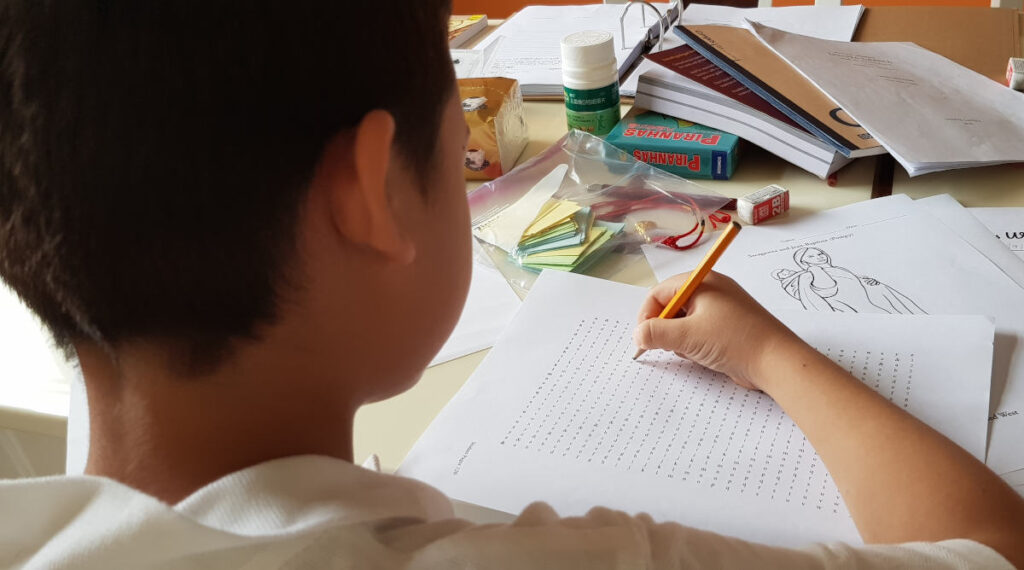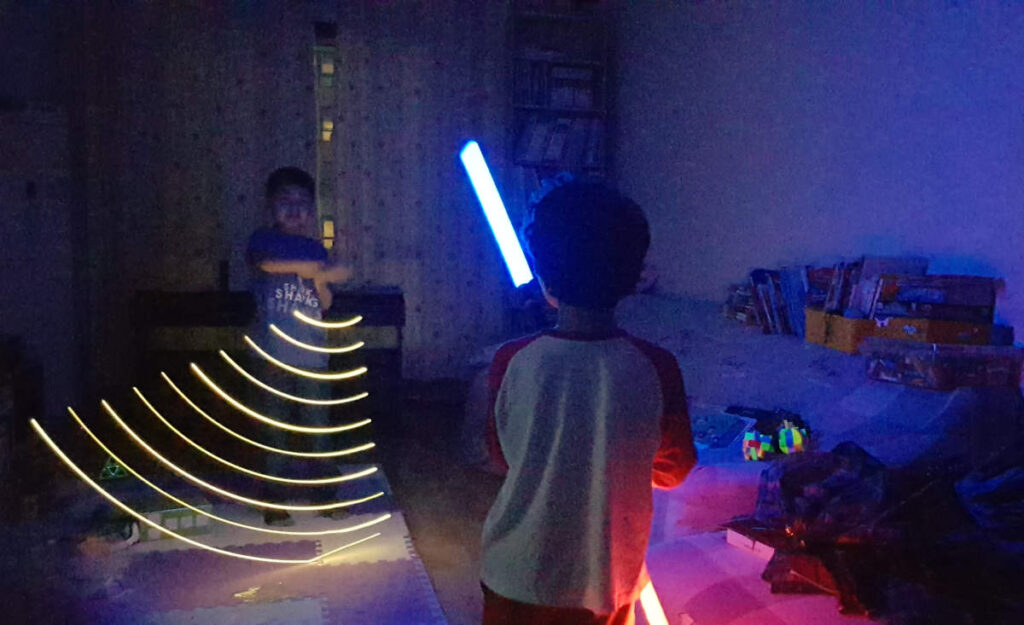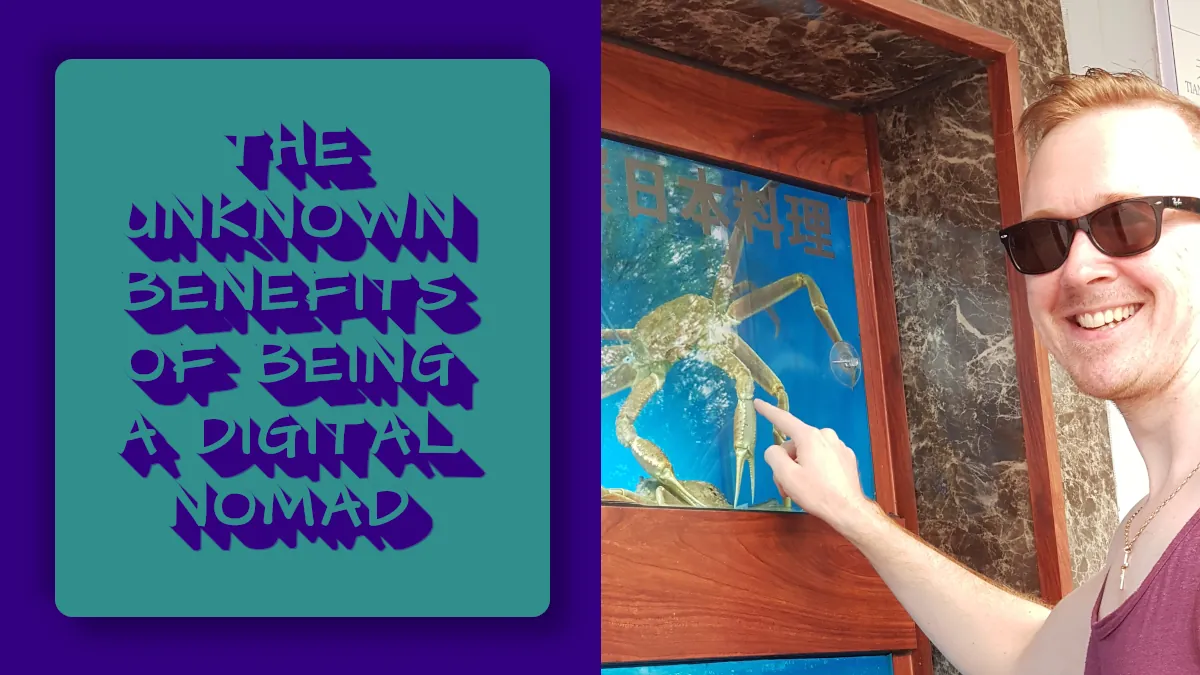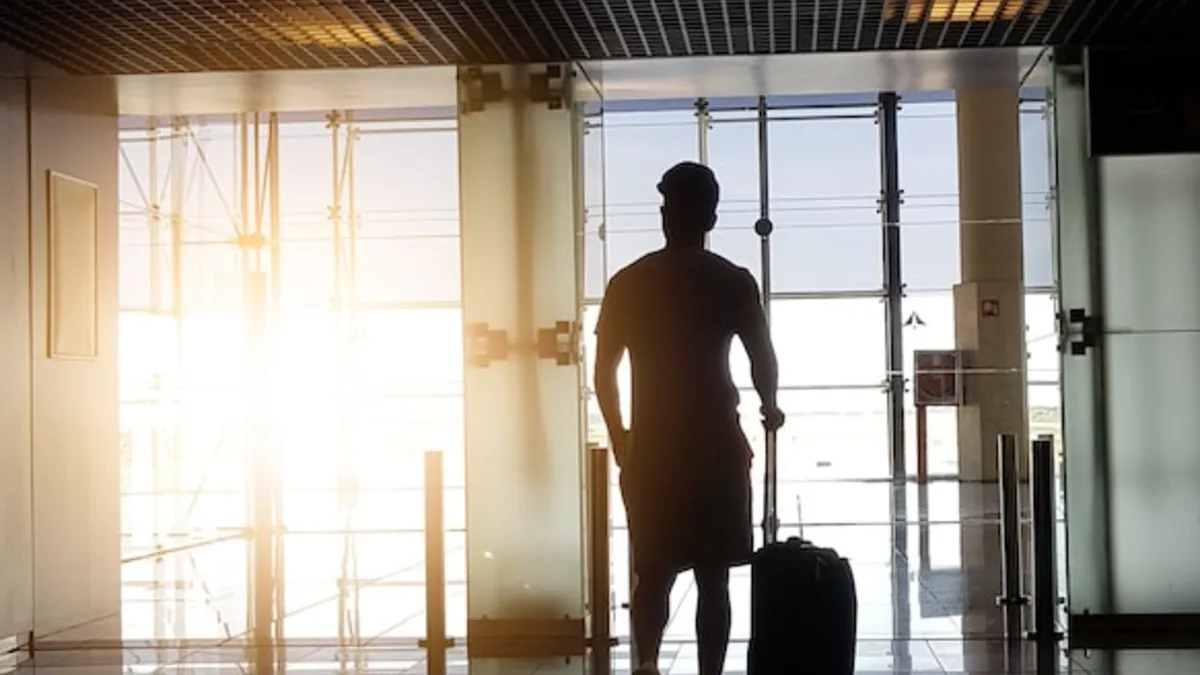If you have kids and are thinking about transitioning into a digital nomad lifestyle or if you’ve already been on the road a while but are looking into the future this post is for you. Everything you need to know to start nomadic homeschooling as a traveling family. I’ve home-schooled while traveling around Asia the for last decade and a half and after years of researching education and homeschooling and putting it into practice, I want to share my experience.
Becoming a digital nomad family is a lot of work, there are so many things you need to get to grips with. My goal in writing this post is to make becoming a nomadic homeschooler family a little easier.
Use the links below to read the sections that most interest you.
Table of Contents
- Nomadic Homeschooling While you travel
- Homeschooling For Digital Nomad Families
- Are Local Schools Suitable For Nomad Kids?
- Are International Schools Suitable for World Traveling Families?
- Are Boarding School Incompatible With The Digital Nomad Lifestyle?
- Are Online Schools A Good Option For Digital Nomad Families?
- What does Homeschooling look like as a digital nomad
- Which Homeschooling style Is Most Suitable For Digital Nomad Life?
- Choosing The Best Curricula For Your Nomad Family
- Which Subjects Do We Need To Cover?
- Curricula Choices For Different Styles
- Taught vs. Non Taught & Scripted vs. Non Scripted
- Curricula Review Sites
- The Legalities of Homeschooling While Traveling Abroad
- Countries Where Homeschooling Is Illegal
- Socializing For Nomadic Kids
- Digital Nomad Tips for Home-schooling While Traveling
- Final Thoughts: How Digital Nomads Make the Most of Traveling While Homeschooling
Nomadic Homeschooling While you travel
There are more options than ever for digital nomads with kids. It goes without saying that our kids are the most important thing in the world to us and so making the best decision we can when it comes to their education. Before jumping into homeschooling styles and different curricula, let’s take stock of all the options that are out there.
If you’re only just starting to think about becoming a digital nomad family, you should be aware that homeschool is not the only way to educated your children while you travel. Travelers of all kinds have used all the options I list below, however in my opinion you can’t beat homeschooling.
Home educating your kids while you traveling the world offers the most flexibility and offers the most choice for a traveling family. Choice is great because if you’ve already decided to become a nomad family, you probably want more than a cookie cutter education for your kids. With a traveling homeschool every family can have what they want.
Homeschooling For Digital Nomad Families

Homeschooling on the road is really just like homeschooling would be at home. Whether you live in a van, an RV or on a boat or have a nomadic lifestyle, moving from country to country homeschooling can be a consistent rock of stability for your family. In a life of constant change having something you can rely on and expect, where ever you are in the world is reassuring for kids.
Studies like this one show that a stable home life is important for healthy child development, but there are many things that that stability can consist of. For most, it’s the stability of familiar surroundings, for others its a group of friends. But it could be the stability of a routine, a curriculum or ongoing project that provides the rock in your child’s life.
Are Local Schools Suitable For Nomad Kids?
Local school is a difficult idea to quantify because a local school in France would be so different to a local school in Cambodia which in turn would be vastly different to a local school in Japan. The variety of different local schools and the emphasis they place on different areas of education is something for another post.
There are three main points you should consider when thinking about sending your children to local schools.
The detrimental effect of being educated in a perpetual second language
Don’t get me wrong, I think being educated in a second language is a great idea. I got my degree from a Chinese university, going through the Chinese university system opened my eyes in a myriad of ways, not least being that it improved my Chinese ability more than just taking Chinese classes ever could.
But if you are planning to move from country to country, your child will never quite get to grips with the language before it’s time to move on. Learning something like chemistry can be hard enough in your native tongue but adding a second language that you’re not confident in can make it seem like a mountain you’re never going to be able to scale.
The jarring effect of leaving your school again and again
There is evidence to suggest that moving around can have a detrimental effect on children, the main reasons for this is having to leave their school life. Leaving school means leaving behind the mentors and friends they have developed as well as familiar surrounding and the familiarity of that school routine.
Starting a new school brings with it it’s own set of problems as new friendships need to be established, new places familiarized with and new expectations learned. It can be a stressful time for a child and repeating it over and over can be especially destabilizing
The inevitable inconsistency with the education your child will receive
Moving from school to school, teacher to teacher, there are bound to be inconsistencies, let lone moving country to country. Language curricula will be stopped and started in different places. Your child may end up missing out whole topics of math or science.
Add to this a potential change in l;language every time you move and it’s a path that is bound to cause problems.
Are International Schools Suitable for World Traveling Families?
There are international schools popping up all over Asia, they cater mainly to expat families who are looking for a education for their children more consistent with what they might get back home. International schools more and more are using the IB curriculum rather than following something country specific, this makes them more approachable for parents regardless of what country them come from.
With so many schools now using the IB curriculum it makes moving around and keeping a somewhat consistent study life possible.
The price is aimed at companies rather than individuals. Many expats get international tuition for their kids included as part of their benefits package. The international schools know this and so the price gets inflated. The price of each of the three international schools here in Tianjin is over $30,000 per year. To put three kids in a school like this you’d need to be on an amazing income for a digital nomad.
Despite the price of international schools reaching the level of a good private school back home, the teachers can rarely compare. International schools tend to attract younger teachers who want to travel.
Are Boarding School Incompatible With The Digital Nomad Lifestyle?
I attended a boarding school from the age of 11 till I graduated high-school at 18 and although I didn’t board, (we lived a short drive from the school), I had many friends there that did.
The first thing that strikes most people when considering boarding school is the price. The price of sending your child to a good boarding school is prohibitive.
I don’t know about you, but I want to spend time with my kid! I can’t imagine him being a thousand miles away living in some school no matter how good the teachers or facilities are.
There are certain intangible effects that children get from the love of a parent that simply cannot be replaced. Frequent face-timing or long summer trips together just don’t make up for not being with your kids ever day.
Are Online Schools A Good Option For Digital Nomad Families?
Online schools have been around for a while but it wasn’t until covid came that they really started to be seen as true alternative to a school education.
If you don’t have the time (or the patience) to home-school your children, online schooling might be a good alternative. You get a consistent education environment for your kids that you can take with you all over the world, without the trouble of gathering curricula, planning lessons or teaching them.
With the massive number of online schools now available (thanks covid!) you are sure to be able to find something that is suitable for both you and your kids
What does Homeschooling look like as a digital nomad
Let me share with you an average day for us, you’ll find it’s probably not much different than anyone else.
We get up and sit around the dining table for about an hour, drinking coffee, eating breakfast and planning the day ahead. Once the table is clear I’ll break out the laptop while Brandon (my son) does his work. The things he can do by himself he does and the other subjects (Latin, Grammar etc.) I’ll do with him. He knows I’m there if he ever needs pointing in the right direction or gets stuck with his math.
He finishes his work about the time I’m in the kitchen making lunch so we can sit and eat together.
Then we have the afternoon to do something fun, yesterday we found a hidden garden surrounded by trees where we juggled and played diabolo. Other days we might meet up with our digital nomad friends or other homeschoolers who live here.
Once you know what you’re doing it’s fairly easy to maintain.
Which Homeschooling style Is Most Suitable For Digital Nomad Life?

When you think about starting to homeschool, it can be overwhelming, there are so many decisions you need to make so many things you need to get ready and so many things you, as a digital nomad, as a homeschooling parent, need to learn. Choosing a homeschooling style will take a lot of the stress out of those choices.
Digital nomad families differ wildly on the way they choose to educate their children while traveling. Just as no two digital nomad families are the same, neither are any two homeschool styles of nomadic families.
You may choose to create a nomad family school based around your religious beliefs, around a second language that you all speak or around a cultural tradition. Where ever your digital nomad life takes you, a consistent family school routine can be the foundation you build your global lifestyle.
Homeschooling has been around a long time and out of that long tradition different styles of homeschooling has arisen. Rather than starting from scratch and designing a whole new educational philosophy, course of study and curricula, use one, or combination of some homeschooling styles as a foundation to build upon.
You’re bound to find a style that resonates with you and that may be a good fit for you children and if it isn’t working, remember nothing is set in stone.
World Schooling
If you’ve been Googling terms about homeschooling and travel, you’ve probably come across the term worldschooling. If you’re still not entirely sure what it’s all about, it’s because the term hasn’t been very well defined online and everyone seems to have their own definition.
The things that most worldschoolers do agree on are:
- Worldschooling is learning from the world around them
- Worldschooling doesn’t use schools or classrooms
- Worldschooling occurs while traveling
This leaves a lot fo room for interpretation and I think that’s intentional. Worldschoolers are not known for being people who like to be boxed in which is why the term is so fuzzy.
If you’re traveling while educating your children, you are to a lesser or greater extent, a worldschooler.
Roadschooling
Another homeschooling buzzword common around the digital nomad water cooler is Roadschooling. If you’re unfamiliar with the term, it means exactly what you think – schooling your kids while on the road.
Essentially roadschooling is homeschooling on the go. Where it differs from something like worldschooling is really just that the emphasis is on road traveling. Most people that call themselves roadschoolers live (or travel) in a van, RV or other road going vehicle. Like wordschooling, being a roadschooler doesn’t preclude you from using any particular homeschooling style or philosophy. You could be a neo-classical style roadschooler or a unschooling roadschooler.
The benefit with calling yourself a roadschooler rather than just a homeschooler or worldschooler is in finding other people in a similar situation who could share advice that would be more applicable to your in your situation. Finding a roadschooling blog, such as Nomads With a Purpose, a digital nomad couple living in an RV, you can find advice for storing resources or setting up a study space which would be different for people living in a smaller space such as an RV.
Deschooling
Deschooling is not really a style of homeschooling, rather its a process or transitional period between schooling and homeschooling. The idea behind deschooling is that the school system imposes certain ideas and feelings about education in children that need to be undone.
- Learning is difficult
- Learning is boring
- Asking questions or being interested will result in ridicule from classmates
Aside from changing this mindset, children just need some adjustment while they get used to a new lifestyle and routine, we all do. So consider deschooling your child before jumping straight into a new homeschooling curriculum. Don’t expect them to take to it straight away.
Thehomeschoolmom has some great resources for parents who are looking to deschool their child.
Unschooling
Unschooling, as the name implies is essentially the rejection of schooled education. Originally named by John Holt in the 1970s, unschooling is also known as child-led learning, a more descriptive name.
Unschooling, or child-led learning, rejects the ideas of a set course of study, teachers, time tables and any other structure in the education process. Instead it the child decides what interests him or her and the parents provide resources to foster that interest.
- Unschoolers.org is a great place to learn more
Classical Homeschooling
Classical homeschooling follows in the same vein as classical education. It’s a nod back to the way education was done in the past. There is a heavy emphasis on classical languages, such as Latin and Greek, classic literature, history and rhetoric (compelling writing and speech.)
Classical education stands in stark contrast with most modern school curricula today. Classic literature tends to be read less and less because it’s considered difficult and often incompatible with modern values. Classic languages were, for the most part, thrown out a hundred years ago and speaking to most teenagers now it’s obvious they are not learning how to make rousing speeches that capture the hearts and minds of the people.
You can think of classical homeschooling as the style that Winston Churchill would have received. That should also give you a good idea of who this style of homeschooling is most beneficial for – politicians, and future leaders.
Neo-Classical Homeschooling
Neo-classical or the ‘new classical’ style of homeschooling is built on the ideas of Dorothy Sayers. Sayers took the contemporary ideas of child development which were only just being discovered by psychologists such as Jean Piaget. These ideas were coming to the forefront of the general public for the first time and Sayers built a style of education around them.
The neo-classical philosophy re-purposes some classical education language, that of grammar, logic and rhetoric and aligns them to the then newly understood stages of child development.
- Grammar stage – elementary
- Logic Stage – Middle school
- Rhetoric – High school
Each of these stages brings with it a different emphasis. The grammar stage, emphasizing information gathering and memorizing. The logic stage emphasizing analysis and the rhetoric stage emphasizing creating compelling written and verbal arguments.
In more recent years Susan Wise-Bauer has popularized this style of homeschooling with her book The Well Trained Mind and related curricula.
The neo-classical homeschoolers now tend to arrange their homeschool around a 4 year history cycle, spending a year in each of Ancient, Middle Age, Enlightenment and Modern history. This is repeated 3 times for a complete 12 years education. Each of the cycles corresponds with one the stages mentioned above.
Charlotte Mason Style Homeschooling
Charlotte Mason was an British educator of the 19th and 20th centuries who thought deeply on the ideas of educating children as a whole person, rather than just a mind to be taught facts. She has had a huge influence, especially on the homeschooling community and her writings are still used as the basis of many homeschool families educational philosophies.
On simplycharlottemason.com they summarize her philosophy with the following quote
“Education is an Atmosphere, a Discipline, a Life.” – Charlotte Mason
Atmosphere refers to the home and family environment, including the ideas and beliefs of parents and the society in which the child lives. Religious and political beliefs fall into this category as does the parents attitude towards education.
Discipline is the forming of good habits, especially the habits that form ones character. Patience, charity and perseverance the other values you consistently work on.
Life actually refers to academia, Charlotte Mason believed that it is only through living thoughts and ideas that we can educate the minds of our children. Of special emphasis here is the reading of living books, books that are written through story with passion rather than using dry textbooks.
Choosing The Best Curricula For Your Nomad Family

When you first look into choosing the best curricula for your children it can make your head spin, there are so many choices now. To make it simpler go through these steps
- List the subjects you want to cover
- Decide on a homeschool style or a few styles that fit you
- How involved do you want to be in their day to day homeschooling?
Which Subjects Do We Need To Cover?
You might decide that you only want to cover the basics while your child is young, or that you want to cover history but not geography this year. You may want to skip physics or chemistry in the elementary years, all of these choices will work! When we first started I only did three subjects with my son:
- Reading
- Writing
- Math
I wanted to cement the basics before we started adding in other subjects. Now (grade 5) we are covering:
- Math
- Expository Writing
- Composition
- Handwriting
- History
- latin
- Greek
- Chinese
- Grammar
- Memory
- Bible Studies
It may seem like a lot, but spread out over the week it’s very manageable and only takes us about 3 hours each day. Subjects such as art, physical education and science we don’t include as part of ‘homeschool,’ just things he enjoys.
Curricula Choices For Different Styles
Charlotte Mason Style
Classical
- Memoria Press
- Classical Conversations
- Tapestry of Grace
- Veritas Press
- Classical Academic Press
- Create Your Own
Neo-Classical
- Well Trained Mind
- Some of the classical curricula above may also be regarded as neo-classical too
Unschooling
- Unschoolers don’t use curricula
Taught vs. Non Taught & Scripted vs. Non Scripted
If you have already made note of how much time you have availble to homeschool your children, that may be a deciding factor in the curriculum you choose. For example if you need to spend hours each day working, you’ll have little time for lesson planning or even teaching. Using a self directed or self taught curriculum may be best.
In order from least time consuming to most, these are your options when looking at homeschooling curricula
- Non taught (Self taught) – child teaches themselves.
- Taught but scripted – less lesson planning necessary.
- Taught non scripted
Curricula Review Sites
My favorite curriculum review site is Cathy Duffy’s site, just because of the sheer size. I can always find information there on a curriculum that I’m interested in.
Using the advanced search on the site you can also search by parent participation so if you are looking for self taught or scripted curricula the site can be a real time saver.
YouTube also has tons of real reviews of homeschool curricula by real parents that give you a good idea of the pros and cons of any curriculum you’re interested in. Usually they also include a flip through which can be useful to help you decide.
The other place to find honest reviews of curricula is social media. If you’re a member of any homeschool groups, ask them! Here are a few of the big ones I’m in.
- Charlotte Mason Homeschoolers
- Secular Homeschool Families
- Christian Homeschooling Moms
- Well Trained Mind
The Legalities of Homeschooling While Traveling Abroad
Before traveling the world homeschooling your children as you go, you need to find out the requirements (if any) of your home state. Homeschool Laws State By State is a great resource for this. It will quickly get you up to date with the regulations you need to follow as required by state law.
This is a list of countries where homeschooling is either illegal, restricted or highly regulated. This may or may not affect the children of expat families or non residents. However you are best to do some research before traveling to make sure you wont run into problems homeschooling.
Countries Where Homeschooling Is Illegal
| Countries where homeschooling is illegal or restricted |
|---|
| Albania |
| Andorra |
| Armenia |
| Azerbaijan |
| Belarus |
| Belgium |
| Bosnia and Herzegovina |
| Brazil |
| Bulgaria |
| China |
| Cosa Rica |
| Croatia |
| Cuba |
| Cyrpus |
| El Salvador |
| Egypt |
| Georgia |
| Germany |
| Greece |
| Greenland |
| Guatemala |
| Hungary |
| Iceland |
| Iran |
| Kazakstan |
| Kenya |
| Latvia |
| Lichtenstein |
| Malta |
| Montejo |
| Montenegro |
| The Republic of Macedonia |
| Netherlands |
| North Macedonia |
| North Korea |
| Russia |
| San Marino |
| Serbia |
| Sierra Leone |
| South Korea |
| Spain |
| Sweden |
| Turkey |
Socializing For Nomadic Kids

Whether you consider socializing a part of homeschooling or just a part of life, it is a question that gets raised whenever homeschooling is mentioned. “How will your kids socialize if they’re homeschooled?” Is the question I was asked by my family members when I first made the decision.
Is it more difficult to build a social life as a digital nomad family? Perhaps, but really the challenges we face are the same as any homeschooling family faces. We want to be a good mother and father so we concentrate on these two categories
- Where to find new friends
- How to schedule time to see them
If you have young kids it’s not that difficult to find friends for them. Walk into any park and release your kids and they’ll find someone to play with. The difficulty is then arranging a time to regularly meet up so that your kids can have some real friends.
On the other hand if your kids are older, or teenagers already, it may be difficult for them to make new friends. No longer can mom just arrange play dates. I have a whole post on making friends as a digital nomad but here are a few tips that make it easier.
- Digital Nomad Groups in your location – search Facebook!
- Find Sports clubs for your kids
- Join in with popular hobbies
Digital Nomad Tips for Home-schooling While Traveling
Here are the digital nomad tips for homeschooling that I’ve found most useful.
- Find a tutor
- Find HS Groups in your location
- Print Out Your worksheets in batches
- Keep a digital copy of your curricula (Use printable digital curricula)
- Don’t sweat the small stuff
- Stay consistent but allow for the fun stuff to take precedence sometimes
Final Thoughts: How Digital Nomads Make the Most of Traveling While Homeschooling
I hope this guide has been helpful! If you want to hear more on any of the topics I mentioned feel free to let me know either in the comments below or on the facebook page.
Remember, you make the most of the lifestyle by doing it your way and enjoying it (and by trying something else when you’re not.)






